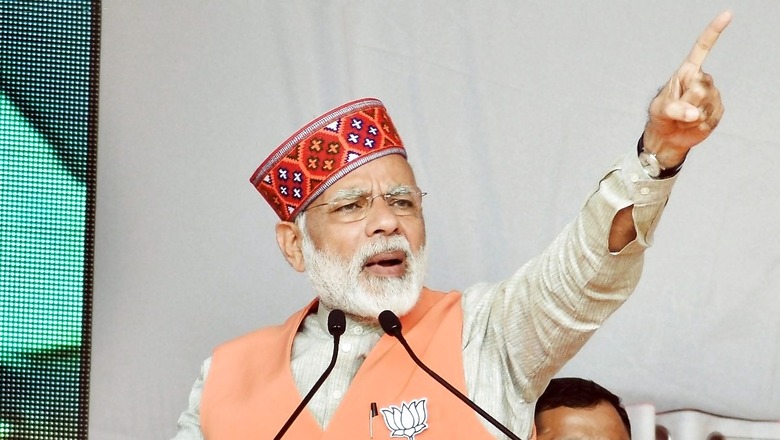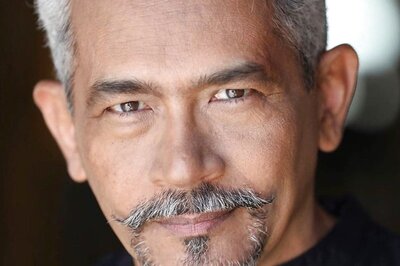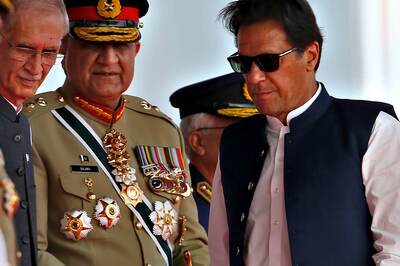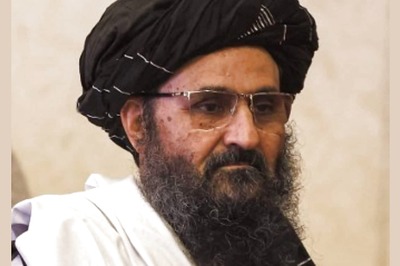
views
Amongst the myriad topics that remained current in the discussions and discourse during the 2024 poll season, a prominent one was the ‘wealth redistribution’ promise made by the Congress in its manifesto and the nefarious expounding by its de facto leader, Rahul Gandhi. Such promises are neither new nor surprising from the Congress camp. After all, this is a party that has successfully navigated through numerous elections since the 1970s, riding on slogans such as ‘Gareebi Hatao’.
From the very first Prime Minister, Jawaharlal Nehru, to his daughter Indira Gandhi and all those who came after them in the tradition of Congress, such populist slogans of eradicating poverty remained a staple of their campaign narratives. Although how much of it is actually translated into action may be a matter of debate. Despite all the pomp and circumstance, the Congress’s 2014 defeat left over 21 per cent of the country impoverished.
This time, however, Prime Minister Narendra Modi’s unusual yet bold reaction to the entire “redistribution debate” was significant. In a country like India, which until very recently was perceived as being socialist-leaning and where a large population could be described as being ‘economically backward’, the prime minister’s reaction was unexpected, if not astonishing.
A person such as the Prime Minister of India is unlikely to firmly oppose a populist idea like that proposed by the Congress, which aims to reduce the wealth gap between the rich and the poor. That too, amidst the peak of the election season! He could have confronted Congress about its hypocritical behaviour. He could have pointed out the fact that the Congress consistently failed to deliver on its promises of alleviating poverty, generation after generation. The Nehru-Gandhi-Vadra dynasty has had a close relationship with the leading industrialists and capitalists since its inception. But instead of attacking his opponents, the PM went ahead and repudiated their entire idea.
Does this mean he is opposed to uplifting the poor? Not the least. This, however, marks a significant break between PM Modi and many of his predecessors, who overtly or covertly championed the politics of ‘doles and division’. It also displayed his personal conviction in his vision for the growth and upliftment of the downtrodden.
The politics of doles and division
The brand of politics practiced by the Congress and its associates for decades revolved around two main components: doles and division. On one hand, these parties looked to cultivate vote banks by creating fault lines and fissures in society based on religion, caste, economic status, language, and whatnot. They pitted Brahmins against other castes, OBCs against SCs and STs, religious minorities against the majority, the poor against the rich, and so on. The other important component of this political brand was “doles”. The division was established, resulting in the distribution of specific doles to different sections. They didn’t aim to empower these sections; instead, they aimed to make the populace reliant on the political class, government, and parties for specific privileges and facilities in exchange for their votes. It was a kind of politics that undermined the very foundation upon which the democratic system rests.
The recent promises made by the Congress and the dotted INDI alliance are also moored in the same political ideology. Even the most ardent supporters of the Congress would not subscribe to the unrealistic belief that the party, if granted power, would disrupt the status quo. Such narratives, however, would leave a permanent dent in the social fabric. When Rahul Gandhi refers to a ‘small number of people’ who own the majority of the resources, he is not merely referring to an economically privileged class, but there are caste and religious undertones to it that he uses subtly or explicitly, depending upon the place and the audience.
An alternate vision
Unlike the Congress, PM Modi’s vision of economic development does not seek to compartmentalise society into sections. Nor does he believe in micro-managing every facet of social and economic life. In layman’s terms, PM Modi rejects the concept of ‘mai-baap sarkar’, which views the government as a benevolent parental figure responsible for shielding one section of society from another. His approach, on the other hand, centers on empowering every section of society cohesively and putting them in charge of their own destiny. During his 2014 Prime Ministership campaign, he expressed his belief in “minimum government but maximum governance”.
Modi is also not into the business of romanticising poverty as a virtue and vilifying prosperity as some sort of sin. He has made it clear unequivocally, through his words and actions in over two decades, at the top of public life that he has every sympathy for the poor but none for poverty. He seeks to uproot it from every source. And to achieve this, his formula is simple, straightforward, and time-tested. He aims to guide the entire society towards collective prosperity by fostering an environment that provides ample opportunities for each individual to elevate their socioeconomic status. The idea is not to redistribute wealth but rather to create more wealth to meet everyone’s requirements.
Respect for what is earned
Modi’s fierce opposition to the Congress’ proposal for wealth distribution also demonstrated a long-overdue respect for earned property in the Indian political class. For a long time, the Indian political class was rife with arrogance and entitlement, believing they could do as they pleased with the property of others. In short, there was no respect for property. A person may spend an entire lifetime making a fortune, but a politician could take away a significant portion of it with a mere stroke of the pen. Starting from the very acquisition of Air India, the history of independent India is replete with such instances of politicians’ sense of entitlement over the hard-earned property of others. We should not forget the usurping of the riches of private entities, including the ransacking and plundering of royal Rajputs such as Maharani Gayatri Devi of Jaipur.
Curiously enough, the original Indian constitution, as framed by B.R. Ambedkar, included the ‘Right to Property’ as a fundamental right. The Constitution’s 44th Amendment stripped it away from the people. But now, the prime minister’s bold stand against such archaic ideas reflects a change in the mindset of the Indian polity regarding citizens’ rightfully earned property. There is a sense of admiration for those hard-working individuals who have made a fortune for themselves and their families, and a desire to create more such opportunities to enable others to do the same.
It may well be observed that today, the Prime Minister of India is committed to upholding the citizens’ life, liberty, and estate – a principle that English philosopher John Locke identified as the main goal of government.
Yuvraj Pokharna is an independent journalist and columnist. He tweets with @iyuvrajpokharna. Here’s the link to Yuvraj’s official WhatsApp channel: https://whatsapp.com/channel/0029VaBKt038vd1QvwLPp515. Views expressed in the above piece are personal and solely that of the author. They do not necessarily reflect News18’s views.




















Comments
0 comment